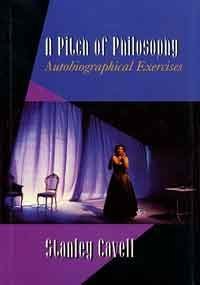What is the pitch of philosophy? Something thrown, for us to catch? A lurch, meant to unsettle us? The relative position of a tone on a scale? A speech designed to persuade? This book is an invitation to the life of philosophy in the United States, as Emerson once lived it and as Stanley Cavell now lives it - in all its topographical ambiguity. Cavell talks about his vocation in connection with what he calls "voice" - the tone of philosophy, and his right to take that tone and to describe an anecdotal journey toward the discovery of his own voice. Cavell asks how the voice of philosophy can be heard amid the commerce of everyday life. His autobiographical exercises begin at home with his parents, his father an accidental pawnbroker and accomplished raconteur, his mother a trained and talented musician. In the course of showing us his certain steps in the discovery of his trade he conveys the sense of what it means to learn to walk on one's own, with a Thoreauvian deliberateness.
He pays suitable attention to a serious ally and antagonist to the task of philosophy as he understands it, namely Jacques Derrida - yet Derrida has mounted a full-scale attack on "voice" and other concepts that Cavell has held open for much of a lifetime. The chapters are interwoven with family reminiscences: in Cavell's discovery of J.L. Austin; his understanding of Wittgenstein; his raising of Emerson to the philosophical canon; his fascination with film (images of women in a medium for women); the revelation that film and opera are the media of "otherness" for women; and finally, the voice at the end - hearing in himself the voice of his mother, which is music.
- ISBN10 0674669800
- ISBN13 9780674669802
- Publish Date 1 May 1994
- Publish Status Out of Print
- Out of Print 8 October 2008
- Publish Country US
- Imprint Harvard University Press
- Format Hardcover
- Pages 212
- Language English
